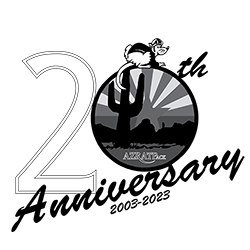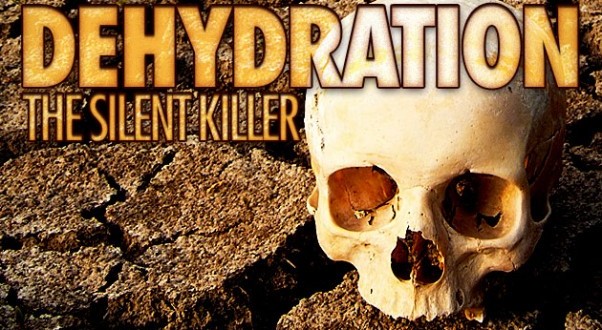Here is another worthwhile article that Rodney found in the GWRRA newsletter:
Heat related illnesses are extremely dangerous. The symptoms and causes are gradual and can accelerate to the point that can cause your body organs to function improperly. The biggest cause of heat related illness is dehydration. Without the proper amount of fluids and salt, vital organs like the kidneys, brain, and heart cannot function. Your blood thickens and your heart pumps much harder to circulate blood throughout the body.
Motorcycle riding can be dangerous if you are not aware of the environment and the condition of your body. The clothes that are being worn and the heat index can add to and accelerate dehydration for both the rider and co-rider. Sleeveless shirts add to dehydration because of the wind and sun. Dark clothing increases the effects of the sun’s heat and increases your risks. It is very important to stop and hydrate every hour or more when riding in hot temperatures. Cool down vests are helpful. If the rider or co-rider experience the slightest evidence of dizziness, you are in danger. Stop and get help!
Risk factors are something everyone should consider when you are working, exercising, walking, or having fun in the outdoor environment. Some of the risk factors are:
- Age – senior citizens are more at risk
- Physical condition – do you exercise regularly? Do you know your limits?
- Existing health issues – do you have a heart condition or other organ issues?
- Medications – know the side effects
- Environment – are you in an abnormal environment? Are you acclimated?
Dehydration can occur anytime your body is not receiving the proper amounts of fluids. If your body is giving out more fluids than it is taking in, dehydration will occur. The problem is that you may not realize this is happening until it is too late. If you feel the need to “catch up” with fluids, do not intake large amounts at one time. It is always better to take small sips over a longer period of time. The symptoms to look for:
- Thirst
- Dry lips
- Dry mouth
- Skin becomes tight
- Dark urine
- Dry eyes
- Headache
Severe dehydration will set in if the above symptoms are not treated or resolved. Severe dehydration symptoms to look for:
- Extreme thirst
- Very dry mouth
- Rapid pulse
- Increased blood pressure
- Urine output decreased and very dark yellow
- Lethargic – don’t feel well
- Dizziness
To avoid dehydration, know your limits and physical condition. Drink water and fluids that contain salt, sugar, electrolytes. Do not drink anything with caffeine and do not drink alcoholic beverages while working in the heat. Notice your bathroom habits. If you are drinking the proper amount of fluids, you should be using the bathroom every 2 hours. Your urine should be clear.
Seek immediate medical care if you:
- Become weak and dizzy
- Feel really bad
- Have high pulse rate, or high blood pressure,
- Have loss of appetite and become nauseated,
- Have tightness and pain in the abdominal area.
- Have vomiting or diarrhea
- Have not urinated in 6 to 8 hours
- Have fever
Don’t become a victim! Be smart, ride smart, and drink fluids that will replenish your body’s loss. Remember – Fun, Safety, and Knowledge is our goal.
Clyde Herring
Medic First Aid Instructor


